As with any coalition government, the different parties which comprise the Labour-NZ First-Greens coalition have dissimilar priorities. Such was the root cause for critics to predict that such an arrangement would make for an unstable government. The first budget the trio of parties will produce, #Budget2018, was the first real test for the incumbent government. There was a finite amount of funding available, could they agree how to distribute those scarce funds to cater to their respective constituencies’ expectations?
The Labour Party would obviously receive the lion’s share of the budget, as it is the leading coalition party. But how did New Zealand First and Greens compare?
In summary, while #Budget2018 may have not been perfect for NZ First it nonetheless handed the kingmaker party with significant wins that will be of great delight to its supporters.
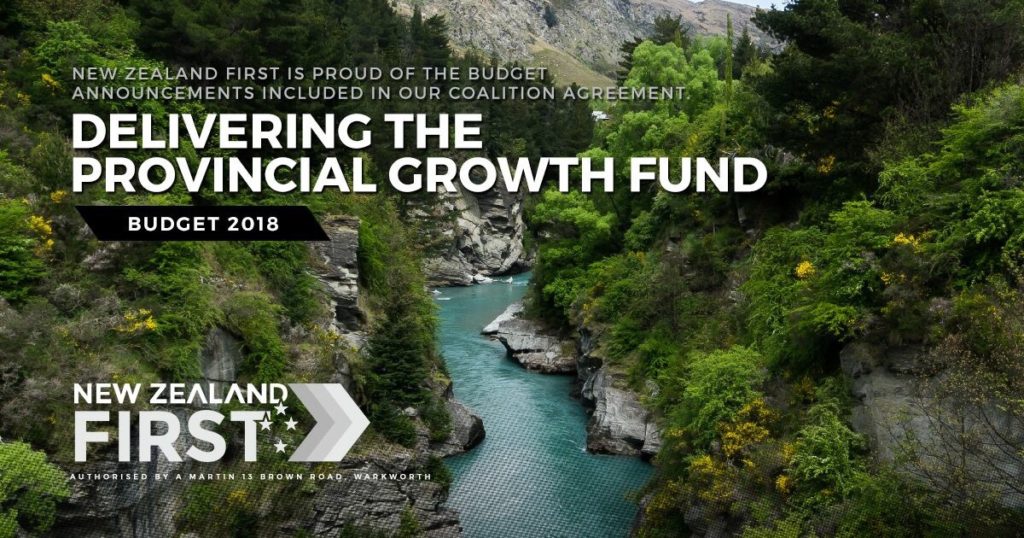
The biggest of these wins was the finalisation of the #ProvincialGrowthFund (PGF), the $1 billion per year over the next three years funding allocation for projects targeting regional New Zealand. The curator of this programme will be NZ First MP, the Hon. Shane Jones, who serves the Minister for Regional Economic Development, for Infrastructure and for Forestry.
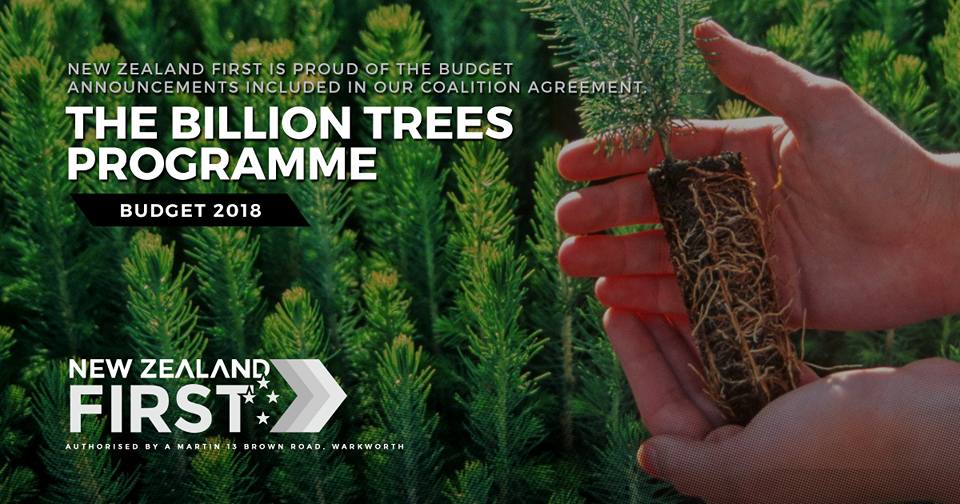
A large chunk of the $1 billion fund will be allotted for the 1 Billion Trees project, which was given $245 million in funding. The initiative will provide jobs to rural New Zealanders, as well as being a remedy to the soil erosion problems that regional cities – such as Gisborne – suffer.
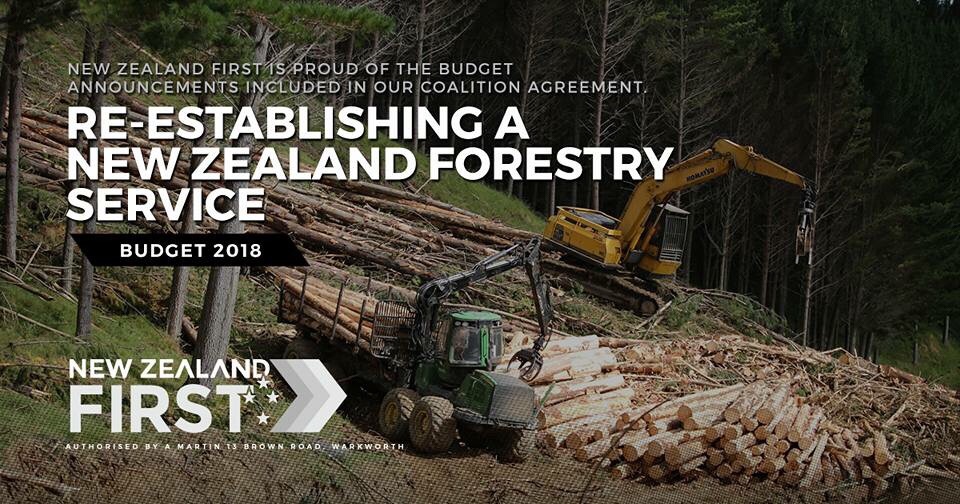
The size of the project requires a dedicated government agency that will be tasked to oversee the tree planting, and this will be undertaken by the recently-revived New Zealand Forestry Service – Te Uru Rākau – also one of NZ First’s victories in the recent budget.
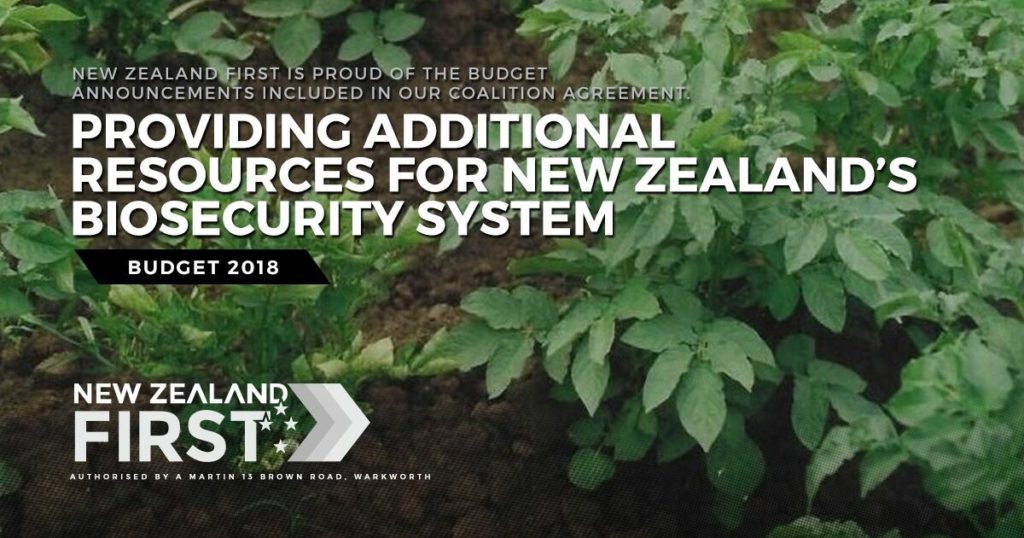
Vast forests also become susceptible to diseases, as the country saw with the widespread kauri dieback from late 2017 to early this year. Tending to these risks falls under the responsibility of the Ministry of Primary Industries (MPI) and specifically the Department of Conservation (DOC), which was allotted an extra $9.3 million in operational funding over the next four years to improve their biosecurity systems.
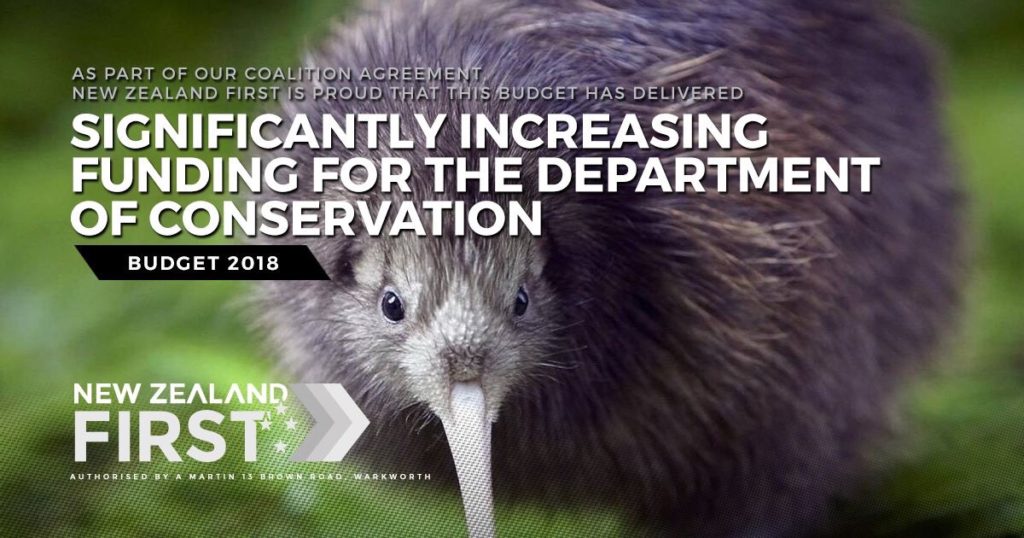
In addition to that tranche of funds, there will be a further $181.6 million in funding for the DOC to undertake projects specifically for conservation. This includes initiatives to protect our native bird species, which have been severely threatened by a plethora of introduced predators.
This budget allocation is part of NZ First’s long-standing policy of phasing out the use of 1080 pellets, which are chemical-laden pellets scattered across vast forests to eliminate predators such as stoats and possums. The added funding will hopefully allow DOC to use other methods to remove these pests rather than an equally harmful chemical.
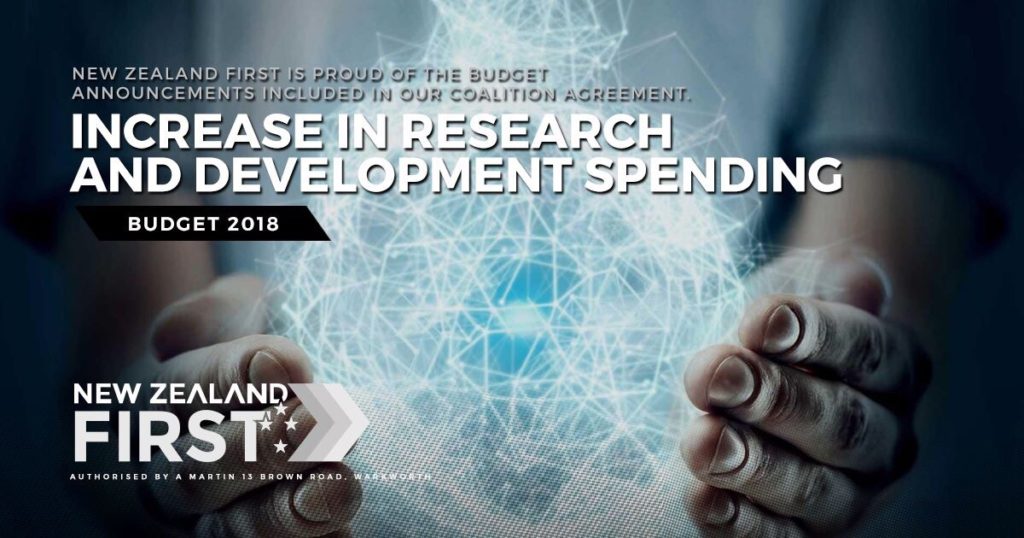
To further aid the challenge of moving away from the use of 1080, NZ First has also long endeavoured for a drastic increase in national spending on research and development (R&D). At present, R&D spending is at 1.2% of the GDP but the party aims to push that higher to 2% of GDP.
Part of #Budget2018 was to allot an additional $1 billion in R&D spending over the next four years. This will enable us to find alternatives to 1080 use, to create new jobs with higher wages and to make New Zealand a world leader in technological innovation.
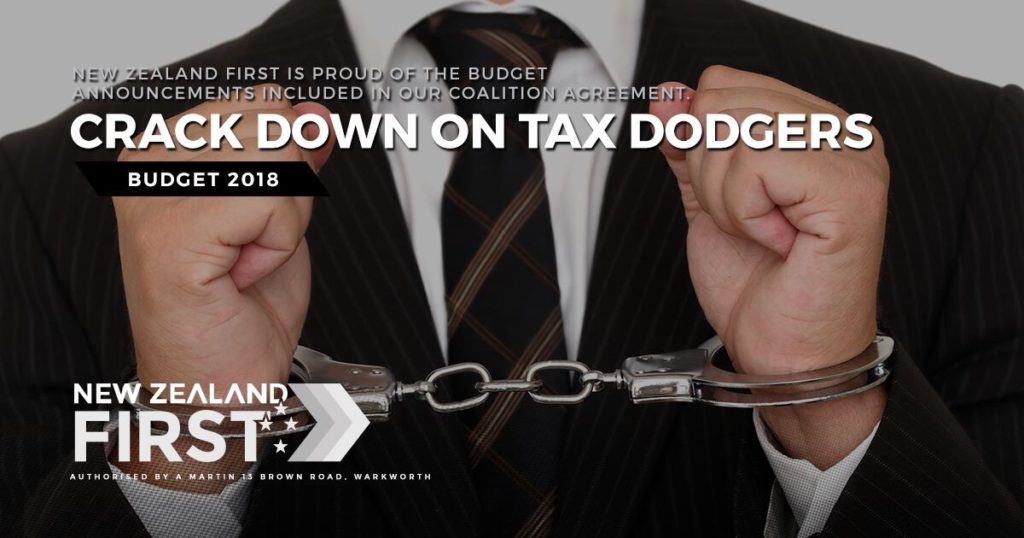
A lot of this new spending will come from added revenue streams, such as the government’s recently announced regional fuel tax that will help fund transport infrastructure in Auckland. However, it is also important to ensure that multinational corporations who ply their trade in the country contribute their fair share.
Cracking down on tax evaders was a vital part of this process, and an added $3 million in operational expenditure over the next four years was provided to study methods to improve tax compliance in several industries. The project aims to collect an additional $726.3 million in tax revenues after four years.
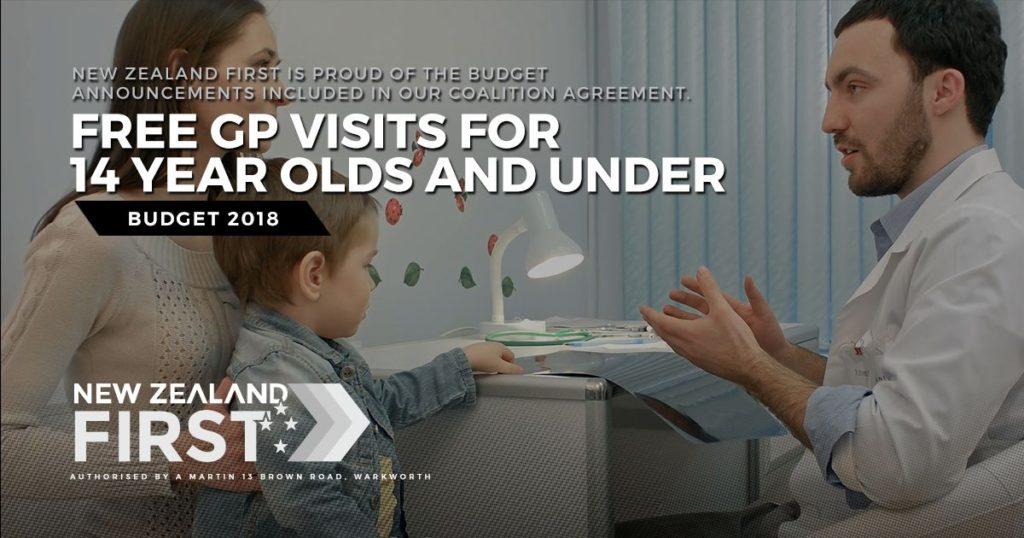
Despite NZ First supporters having the reputation of being largely geriatric, unbeknownst to many the party actually has implemented a policy that largely benefits children. In 1996, as part of their coalition agreement with the National government NZ First enacted free GP visits for ages 5 and under.
The most recent budget bolsters that further, as it will be extended to all those aged 14 years and under. This move is a sign that NZ First understands that investing in a healthy start in life for all New Zealanders would benefit the country in the long term.
An estimated 56,000 children will be better-off, and the funding also provides for free prescriptions for these young patients also.
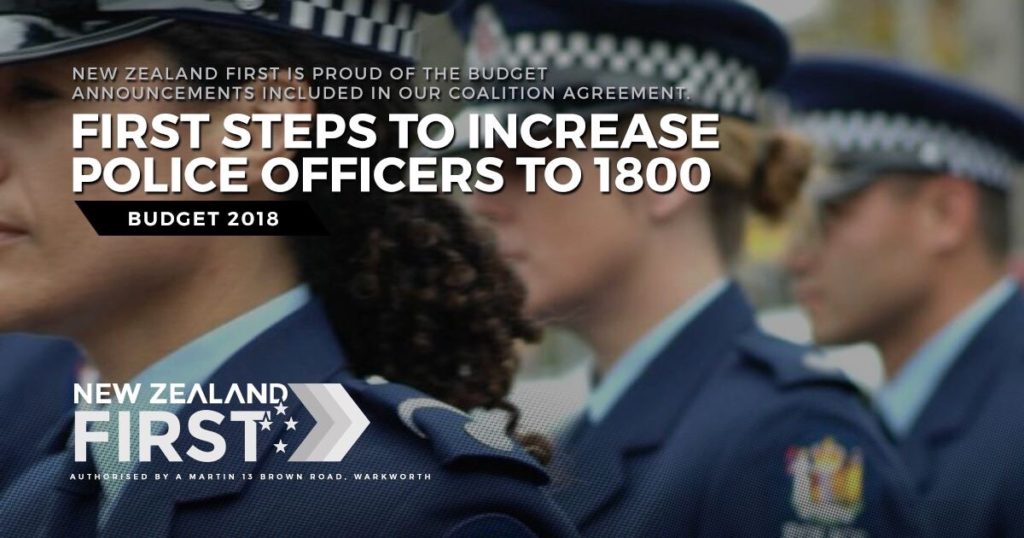
The health of all New Zealanders is not the only thing that NZ First wants to secure, but their safety from criminal elements also. A pre-election promise made by the party was to provide funding to recruit 1,800 more police officers by 2020.
In #Budget2018, a whopping $298.8 million was provided as the “first step” to achieving those police increase. Of that planned recruitment number, 700 officers will be dedicate to combat organised crime while the rest will be “on the beat”.
These “budget wins” are on top of the other previously announced achievements such as the funding increase of $190 million for the Ministry of Foreign Affairs and Trade (MFAT) to provide more diplomats and open a new embassy in Sweden, the raising of the minimum wage to $16.50/hour with the intention of seeing it rise to $20/hour by 2020, the funding boost of $367.7 million in operational expenditure of the Defence and Veterans’ Affairs ministries and the added funding of $269.9 million for Oranga Tamariki to improve its services to distressed children.
So to answer succinctly to the question of what NZ First achieved in #Budget2018: it achieved a lot.

